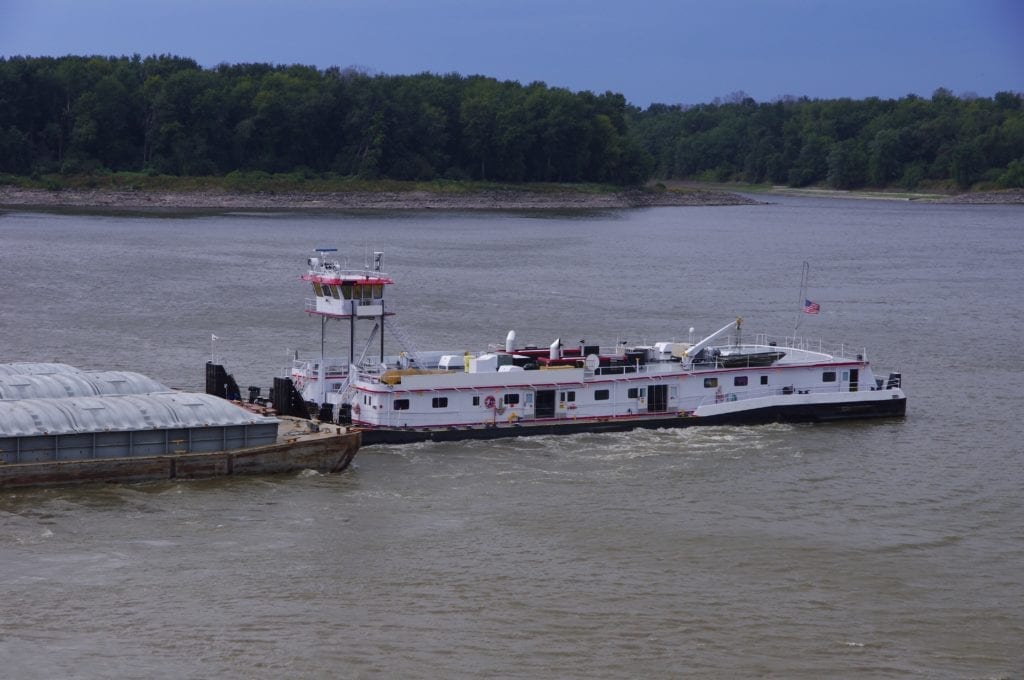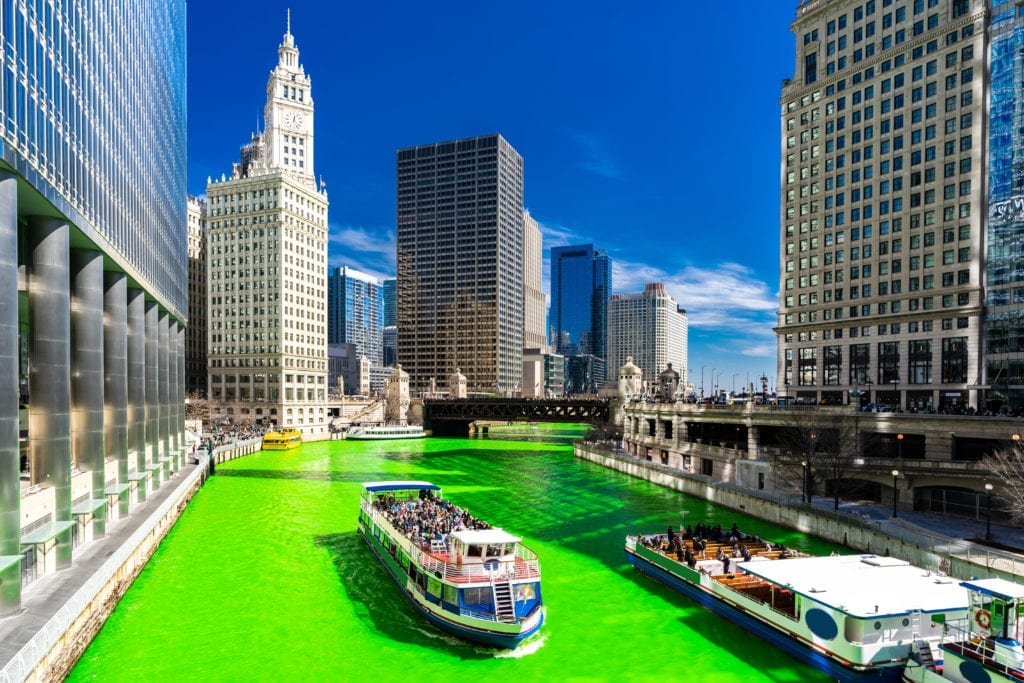Brian J Graber LLC is a Seaman’s Protection Act lawyer representing maritime employees in Illinois, Indiana, and Michigan employed on vessels operating on rivers and Lake Michigan who are retaliated against in violation of the Seaman’s Protection Act. The Seaman’s Protection Act, (SPA), 46 U.S.C. §2114, protects “seaman.” The SPA defined “Seaman” as any individual engaged or employed in any capacity onboard a U.S. – flagged vessel from retaliation for engaging in certain protected activities pertaining to compliance with maritime safety laws and regulations, including reporting maritime safety issues to the U.S. Coast Guard or any other federal agency.
A person is considered a “seaman” for the purposes of SPA’s Whistleblower Protections if he or she is a person engaged or employed in any capacity aboard a covered vessel and is not a member of the Armed Forces. The term includes a person working on a vessel in the capacity of cooks, fishermen, physicians, or other persons who would normally be considered independent contractors.
A vessel for the purposes of SPA’s Whistleblower Protection provisions is any watercraft or other artificial contrivance used, or capable of being used as a means of transportation on water. The vessel must be a U.S.-flagged vessel or any other vessel owned by a citizen of the United States.
The SPA’s Whistleblower Protections would apply to covered vessels operating on Lake Michigan, Lake Superior, Chicago River, DesPlaines River, Chicago Sanity & Ship Canal, Calumet River, Cal-Sag Channel, and the Kankakee River in the Chicago area. SPA’s Whistleblower Protection provisions would apply to the private sector and local government employers but the vessel on which the person is employed must be American-owned.

PROTECTED ACTIVITY UNDER THE SEAMAN’S PROTECTION ACT.
Under the Seaman’s Protection Act, 46 U.S.C. §2114(a)(1) a person may not discharge or in any manner discriminate against a seaman because the seaman engaged in any of the following protected activities:
- The seaman in good faith has reported or is about report to the Coast Guard or other appropriate Federal agency or department that the seaman believes that a violation of a maritime safety law or regulation prescribed under that law or regulation has occurred.
- The seaman has refused to perform duties ordered by the seaman’s employer because the seaman has a reasonable apprehension or expectation that performing such duties would result in serious injury to the seaman, other seamen, or the public. The circumstances causing a seaman’s apprehension of serious injury must be of such a nature that a reasonable person, under similar circumstances, would conclude that there is a real danger of an injury or serious impairment of health resulting from the performance of duties as ordered by the seaman’s employer. The employee must have sought from the employer, and been unable to obtain, correction of the unsafe condition.
- The seaman testified in a proceeding brought to enforce a maritime safety law or regulation prescribed under that law.
- The seaman notified or attempted to notify, the vessel owner or the Secretary of a work-related personal injury or work-related illness of a seaman.
- The seaman cooperated with a safety investigation by the Secretary of the National Transportation Safety Board.
- The seaman furnished information to the Secretary, the National Transportation Safety Board, or any other public official as to the facts relating to any marine casualty resulting in injury or death to an individual or damage to property occurring in connection with vessel transportation.
- The seaman accurately reported hours of duty under 46 U.S.C. §2101, et seq.
The term “person” for the purposes of liability under the SPA, 46 U.S.C. §2114(a)(1) is broad and includes one or more individuals or other entities, including but not limited to corporations, companies, associations, firms, partnerships, societies, and joint-stock companies. Individual officers, directors, and others responsible for the unlawful retaliation can be personally liable.
A person may be found to have violated the SPA if the person took any adverse action against the seaman for engaging in any of the seven above-described protected activities. Adverse actions for the purposes of the SPA include but are not limited to discharge, blacklisting, demoting, denial of promotion, discipline, denying benefits, and other actions which lead to constructive discharge.

EMPLOYEE’S BURDEN OF PROOF
The person employed as a covered seaman for the purposes of Seaman’s Protection Act’s Whistleblower protections must generally prove the following elements:
- The seaman engaged in one or more the seven SPA protected activities identified above.
- The defendant knew or suspected that the seaman engaged in the SPA protected activity.
- The seaman suffered an adverse employment action that would dissuade a reasonable seaman from engaging in the SPA protected activity, i.e., discharge, discipline, demotion, blacklisting, etc., and
- The SPA protected activity was a contributing factor in the adverse action.
A “contributing factor” is a factor which, alone or with other factors, in any way affects the outcome of a decision. Several other factors alleged by the employer may require further analysis by an experienced employment attorney. Several other factors alleged by the employer may require further legal analysis and could have an effect on the ultimate outcome of the potential litigation.

STATUTE OF LIMITATIONS AND 210 DAY “KICK-OUT” PROVISIONS
A seaman covered by the SPA’s Whistleblower Protection provisions must file a Whistleblower Complaint with OSHA properly naming the responsible parties not later than 180 days after the alleged violation occurred or else be barred from recovery under the SPA’s Whistleblower Protections. Brian J Graber LLC, a Seaman’s Protection Act lawyer prepares and files Whistleblower Complaints with OSHA for our clients who have retained our legal services. If you believe that you have a claim against any reasonable persons for violations of the SPA’s Whistleblower Protections, you should consult with an experienced attorney as soon as possible because there are many considerations that go into timely preparing and filing a Whistleblower Complaint with OSHA. If you missed the 180-day statute of limitations for the SPA’s Whistleblower Protection provisions, you should still consult with Brian J Graber LLC, in Illinois at (312) 291-4648 or in Indiana at (574) 395-5189 or in Michigan at (269) 230-6054 as soon as possible because you may have other claims under Illinois common law retaliatory discharge or the Illinois Whistleblower Act which have a much longer statute of limitations period.
If OSHA does not issue a final decision on your Whistleblower Complaint within 210 days after your Whistleblower Complaint was filed with OSHA and if the delay is not due to any bad faith on your part, you have the option of filing a lawsuit against the responsible parties in federal court. If you decide to file a lawsuit in federal court, you will have a right to a jury trial on all issues. If you decide to proceed administratively, your SPA Whistleblower claims will be decided by an Administrative Law Judge without a trial by jury.
Contact Brian J Graber LLC, a Seaman’s Protection Act lawyer at the Illinois office: (312) 291-4648 or the Indiana office: (574) 395-5189 or Michigan at (269) 230-6054 if you would like a free consultation on your rights under the SPA’s Whistleblower Protection provisions or email us.
